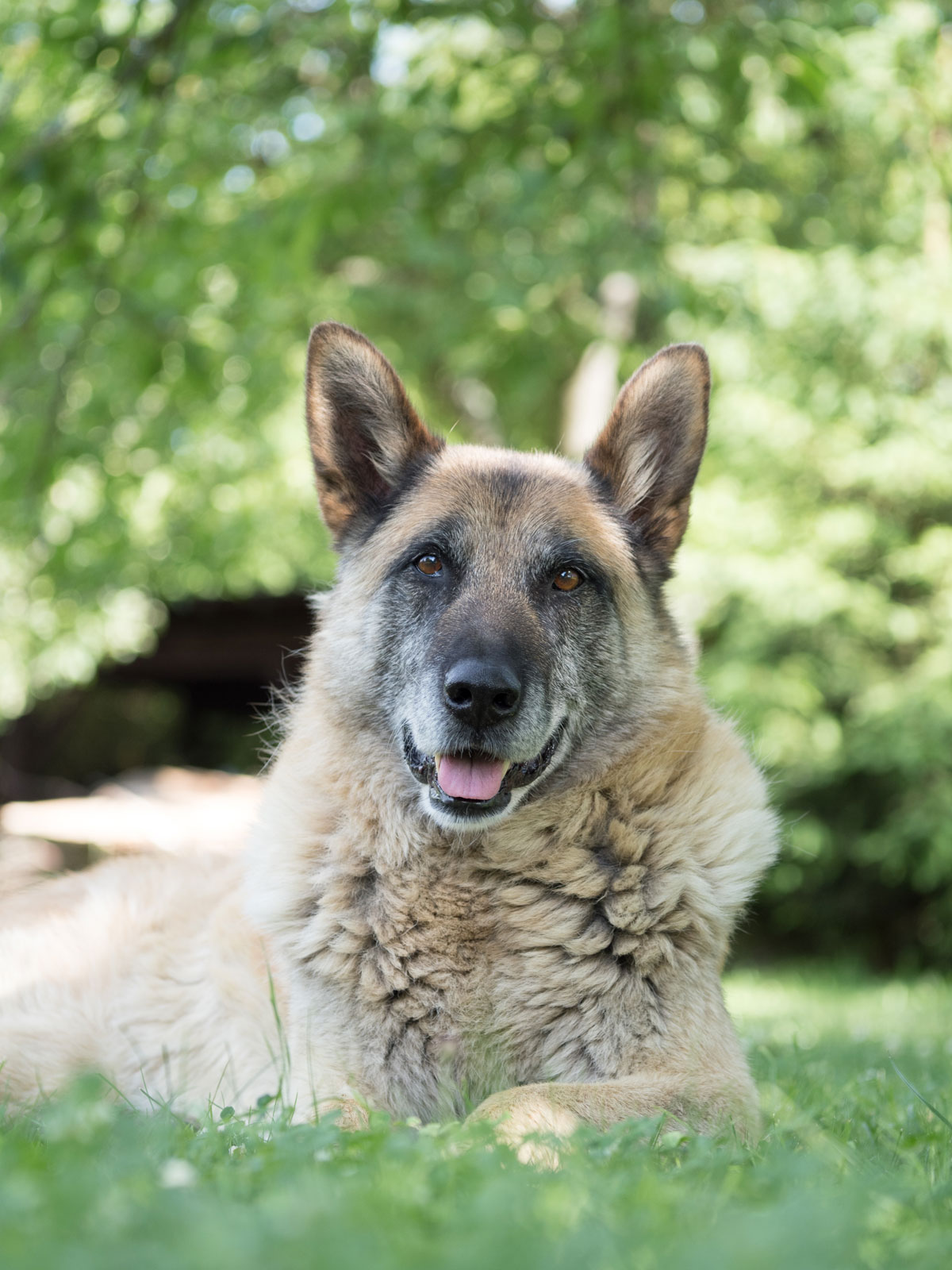
The average lifespan of a dog is 10-13 years, but that number can go up or down depending on the breed and size of the dog. The average lifespan of a human is about 7-8 times that of a dog’s. A biotech firm has taken up the cause to close the lifespan gap between our species. A company called Loyal is developing a drug aimed at prolonging the life of dogs, and the FDA has just approved the drug for clinical trials:
A melodramatic opener: “When you adopt a dog, you’re adopting future heartbreak,” Emilie Adams, a New York resident who owns three Rhodesian Ridgebacks, tells Emily Anthes of the New York Times. “It’s worth it over time, because you just have so much love between now and when they go. But their life spans are shorter than ours.” Now, the San Francisco-based biotech company Loyal has announced its anti-aging drug for canines cleared the first of several hurdles needed for approval by the Food and Drug Administration. While the drug still must undergo clinical trials, this marks the first time the FDA has indicated a willingness to endorse longevity drugs, writes Hilary Brueck for Business Insider.
Dogs—the data bridge between humans and roundworms: Scientists have long been interested in ways to slow the aging process and extend life. Previous research on roundworms edited two cell pathways to extend their lifespans by 500 percent… But aging in more complex and longer-lived organisms such as humans has proved more difficult to hack. For one, clinical trials would need to span decades before researchers could collect any data, which would get very pricey. However, Loyal CEO Celine Halioua thinks dogs, which face similar age-related ailments at roughly the same time in their life as humans do, might be a good model for our own longevity. “If a big dog is, you know, getting sick and dying from age-related diseases at age seven, eight, nine, he’s going gray at age four. He’s getting a limp at age five… The rate of aging is so high that you can tell if a drug is impacting that in about 6 to 12 months. In 6 to 12 months, you’re not going to see anything in a person.”
Size matters: Loyal’s drug, called LOY-001, is an injection-based treatment that targets a growth and metabolism hormone called IGF-1. This hormone seems to be size-related — it appears in higher levels in larger dogs and in lower levels in smaller dogs. Research has shown that inhibiting IGF-1 in flies, worms and rodents can increase their lifespans, per Wired’s Emily Mullin… LOY-001 is designed for healthy dogs over the age of seven and above 40 pounds, and it would be administered every three to six months by a veterinarian. The company is also simultaneously working to develop a daily pill called LOY-003.
Warning! The drug does not offer immortality: “We’re not making immortal dogs, to be clear, but that rate of aging will be slower, hopefully, which means the pet will be in a healthier state for longer,” Halioua tells Megan Rose Dickey of Axios. “And that’s fundamental to all of the biology of what we’re doing.”
Loyal’s next steps: The company plans to begin a large clinical trial for LOY-001 with about 1,000 large and giant dogs in either 2024 or 2025, with the goal of having a product on the market by 2026, reports Wired.
[From Smithsonian Magazine]
Was anyone else giggling each time they used the term “anti-aging,” imagining a body lotion to give your pup a youthful glow? Olay regenerist, for your retriever. I’m of two minds on this one. On the one hand, I’m in favor of scientific research and investigating how the world works (you know, before we finish destroying it). But really, how much money is being raised and spent on this endeavor, that ultimately sounds like a reluctance to deal with reality — the fact that our beloved dogs will die before us. Curiously absent from this reporting is any indication of how much time this drug may add to Fido’s life.
So in an effort to relay some currently vital canine news, an update on our PSA from before Thanksgiving: the mysterious respiratory illness has now spread to 14 states. Symptoms include coughing, sneezing, rapid breathing, wheezing, fever, nasal or eye discharge, weight loss, loss of appetite, lethargy. Veterinarians are still trying to identify the cause. It’s recommended to keep your pup up-to-date on all vaccinations, and to keep them away from other dogs. ‘Twill be the season of doggie social isolation.
Note by Celebitchy: There are anecdotal stories about dogs with the mystery illness being successfully treated with human inhalers.
Photos credit: Pawtography Perth, Nathan Mullet, Kanashi, Katja Rooke, Berkay Gumustekin and Rebecca Chandler on Unsplash
Source: Read Full Article



